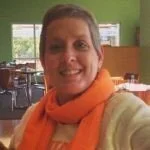Words of Wisdom From Leiomyosarcoma Survivors
LMS survivors share their experience and insights
LMS Statistics by Vicki Strong
Ignore statistics! Statistics for rare diseases are skewed toward the negative because it takes many years to gather enough numbers to be mathematically sound. So statistics are based on results from 5-10 years ago. In just a few years, diagnostic imaging has improved, morcellation is being eradicated, and there are literally dozens of new treatment options from targeted radiation to new chemos to immunotherapy. And there is this: With LMS online groups like this, and websites like LMSdr.org, patients like YOU are knowledgeable, overall healthier and better equipped to be their own advocates.
This is Your New Job by Amy Regenstreif
Approach it that way!
1. Organize your money
2. Organize your health insurance
3. Make up your mind to come out better than the day you were diagnosed
4. Learn to ask for help
5. Tell people exactly what you need
6. Don’t feel guilty… it’s not your fault
7. Get at least one consult from a sarcoma specialist and surgeon
8. Always speak up, ask questions and get answers
Second Opinions by Sharon Anderson
When a doctor tells you there’s nothing more they can do, they are right. That doesn’t mean another doctor won’t have some other treatments for you. Get second and even third opinions from sarcoma specialists at major sarcoma centers. Ask the surgeon directly if they can operate, not your oncologist. Talk to interventional radiologists about all their methods to get rid of LMS tumors. Look for clinical trials. Ask for suggestions on our Facebook group. Don’t rely on just one doctor to know all possible treatment options.
SCANXIETY by Our Support Group Members
Take Ativan… why not?
Plan B. Have your plan B ready in case plan A didn’t work. Knowing your next steps ahead of time will help you feel less powerless and be in control of the situation.
Go to your happy place… literally and figuratively.
Pretend you already got good results.
Don’t tell other people about your upcoming scans… just when you distract yourself they will start bugging you for the results and making your anxiety worse. Tell people AFTER you have scans results.
Meditate and calm your mind.
Insurance by Vicki Strong
No does not mean no!
Many if not most of us have had a recommended treatment or test or an insurance payment denied. Do not panic and do not assume no is an absolute no! You have every right to appeal, not just once but again, and again… If you do not have the energy, enlist the help of a wise friend or another cancer survivor to help. Engage your prescribing doctor, a patient care coordinator at the clinic or a hospital social worker by asking them to write a letter or make a call on your behalf.
Have a good cry if you need to in order to get through the initial frustration. Then, drop anything combative, confrontational and emotional; arm yourself with facts, logic, and confidence and go get ’em!
Hormone Receptor Tests by Lauren Rosie
Make sure that the pathologist at the hospital where you had surgery, stains the slides to reveal whether or not your uterine LMS tumor has estrogen and progesterone receptors. It’s a simple and cheap test. It can help with your treatment options. These receptors can be on any tumor because cancer cells are mutants and they may have them. Don’t believe your oncologist if they tell you LMS doesn’t have these. That is 100% false. Estrogen blocking drugs have been shown to improve outcomes in many LMS patients who had tumors with estrogen receptors. They can be taken orally as a tiny pill, with manageable side effects. Ask for the test!
Hope by Daryl Brown
Hope sees the invisible,
Feels the intangible and
Achieves the impossible.~~Anonymous.
No matter how dire your diagnosis, keep HOPE in your heart. New breakthroughs are being made every year. Diagnosed with LMS in June 2011, my gyn onc kept saying over and over and over again: “This is grave, very very grave.” I turned around and started looking for a shovel to dig my grave. Many LMS patients have participated in cutting edge clinical trials that are now routine treatments for LMS patients. We are the vanguards, willing, with Hope in our hearts, to step into vast unknown territory with the strongest hopes that this will be the trial that will make a difference in our survival. Yondelis was the trial that gave me 20 months of stability. A miracle! My hopes now are on Doxorubicin and Olaratumab to give me more months of stability. Don’t give up! Let’s go arm and arm together, with Hope in our hearts that we will enjoy another glorious new spring — a renewal of life!
Daryl Brown
5.5 yrs uterine leiomyosarcoma
15 yrs endometrial cancer
16 yrs melanoma
25 yrs breast cancer
It Takes A Village by Susan Titus
They say it takes a village to raise a child. I believe it also takes a village when you are faced with a LMS diagnosis. Allow yourself to let others help you. They want to help you. Let them know how. It’s okay to ask for help. It’s okay to accept help. You would do the same if the situation were reversed. It’s so important to rely on each other. Rely on your family. Rely on your friends. Let them become a part of your story. Let them be your village. Together we are stronger.
Optimistically Cautious by Meg Thorburn
During our LMS journey, we are often advised to be “cautiously optimistic”. But why be cautious about our optimism? It is hope that keeps us going, and we need to keep our hope at 100% – whether it is hope that we will survive the cancer, hope that we will live long enough to help our children reach adulthood, or simply hope that we can be at peace when we pass.
I much prefer the term “optimistically cautious”. Caution is imperative – but for our decision-making and actions, not our spirit. The decisions we make during our cancer journey are monumentally important. Even when we are exhausted, frightened and in pain, we must somehow pull ourselves together to make well-informed and non-emotional decisions. Hope should not influence our decisions – but it is what gives us the strength to work to make the best decisions. Caution (reason) is our guide; optimism (hope) is our light.
Beware the “Be Positive” Police by Sharon Anderson
Watch out for the “Be Positive” police. Nothing makes you more depressed than people telling you to “think positive.” First, you can’t just wish away your sadness and fear. It doesn’t work. Second, the positive police are typically people who can’t bare to empathize with your feelings so they tell you to just not have them. Huh? A true friend will hold space for you to feel what ever you feel, acknowledge it and listen. THEN maybe you can do some practical things to help yourself climb out of the hole. You do want get positive feelings back in your life again, but you have to learn how to best get there.
What to Say or Not to Say to LMS Patients by LMSDR Support Group Members
DO NOT SAY
You can handle this… you are strong
Everything’s going to be fine
Don’t give up
Think positive
Try to live your life to the fullest
Wore you stressed, angry or depressed before you got cancer? Did you smoke
There’s a reason for everything
You’re not given anything you can’t handle
Cancer is a gift
I bet you really appreciate things in your life more now
I know this (juice, cleanse, tea, supplements or diet) that you have to try
You don’t look sick!
You look great! (when you clearly don’t.)
I have a friend I know who died of…
You are cured… you’ll never have to worry about this again
I stayed up all night crying, I’m so worried
I know how you feel
Just be grateful you don’t have….
Is there anything you have always wanted to do that you still have time for?
How long do you have?
DO SAY
Can I help you organize your bills, walk the dog or do the dishes for you?
This really sucks. You don’t deserve this.
I’m sorry this is happening to you
I can’t even imagine how you feel
How are you really feeling?
Don’t worry about returning my call, email, etc. if you’re not up to it
I’m sending you my love
I’ll pray for you
What can I do to help?
What is your treatment plan?
Can I give you a big hug?
You can call me when you are scared, angry or depressed
You can call me when you want to take a break and not talk about cancer too
Is today a good day or a bad day?
I can only tell you what happened to me, but It’s up to you to make a decision
Find out the facts and whatever decision you make, is right for you
What are the latest advancements in this cancer’s treatment? Would you like me to research this?
Or don’t say anything… just listen and acknowledge what they are feeling











